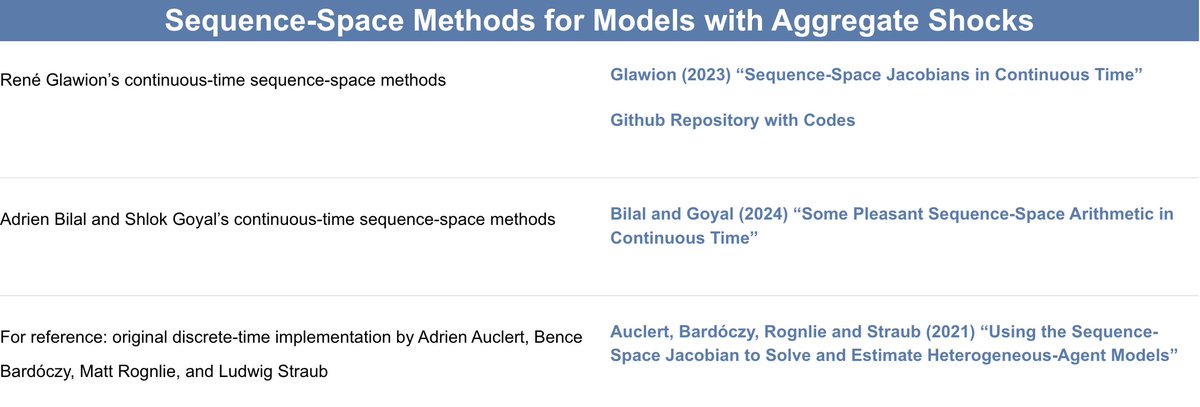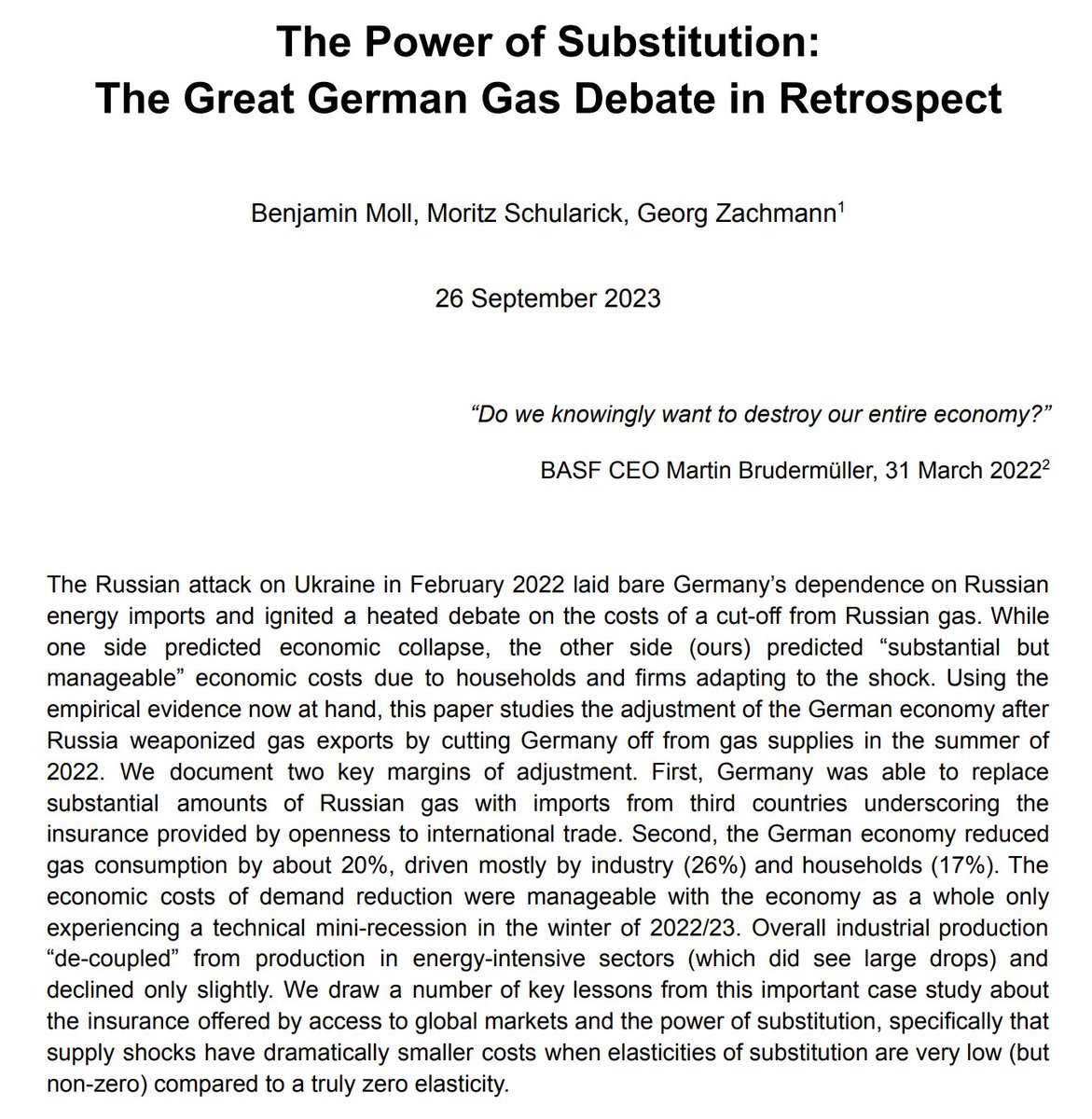We put together a team of macro-, micro- and energy economists to think about the question: what would be the effects on the German economy of a stop of energy imports from Russia?
In short: moderate, especially in combination with the right policy response.
1/
In short: moderate, especially in combination with the right policy response.
1/
https://twitter.com/kuhnmo/status/1500937765814517774
Link: econtribute.de/RePEc/ajk/ajkp…
Members of team: @BachmannRudi @DBaqaee @christianbaye13 @kuhnmo @andreasloeschel @APeichl #KarenPittel @MSchularick
See the more @kuhnmo thread for details.
2/
Members of team: @BachmannRudi @DBaqaee @christianbaye13 @kuhnmo @andreasloeschel @APeichl #KarenPittel @MSchularick
See the more @kuhnmo thread for details.
2/
Worth emphasizing: the -3% GNE loss number is an extremely conservative upper bound.
Using the more reasonable @DBaqaee-Farhi model, we obtain numbers that are an order of magnitude lower.
But this is a hard counterfactual to predict so we wanted to be conservative.
3/
Using the more reasonable @DBaqaee-Farhi model, we obtain numbers that are an order of magnitude lower.
But this is a hard counterfactual to predict so we wanted to be conservative.
3/
Just realized the link above was to the German version. Here’s the English one econtribute.de/RePEc/ajk/ajkp…
Replication materials for our results are here benjaminmoll.com/RussianGas_Rep…
We've gotten a lot of questions whether and to what extent our model features production chains and cascades.
The most recent appendix discusses this more clearly:
benjaminmoll.com/RussianGas_App…
The most recent appendix discusses this more clearly:
benjaminmoll.com/RussianGas_App…

We review the many other high-quality studies assessing effects of an import stop on German economy
benjaminmoll.com/RussianGas_Lit…
Summary:
- no single study finds deviation of yearly GDP from baseline larger than 5.3%
- no single study finds recession with GDP drop larger than 2.5%
benjaminmoll.com/RussianGas_Lit…
Summary:
- no single study finds deviation of yearly GDP from baseline larger than 5.3%
- no single study finds recession with GDP drop larger than 2.5%

Our review builds heavily on the careful and highly recommended survey by @SVR_Wirtschaft 

Of course, any model-based quantitative assessment is necessarily subject to a large degree of uncertainty, both with respect to parameter values and functional form assumptions and in the form of uncertainty about model choice and assumptions (“model uncertainty”). 



We nevertheless think that the combined body of work suggests that:
- a recession with year-to-year GDP drop of >5% seems highly unlikely
- a recession with GDP drop of 10 or 15% or even Great Depression-type scenario is completely implausible
- a recession with year-to-year GDP drop of >5% seems highly unlikely
- a recession with GDP drop of 10 or 15% or even Great Depression-type scenario is completely implausible

As we said many times, these numbers -- GDP deductions of 3% or 5%, or a recession with a 2% GDP drop -- are substantial.
But they do not amount to an economic catastrophe.
But they do not amount to an economic catastrophe.
In case this wasn't clear and to put it a bit more bluntly: the "completely implausible" scenarios include
- "the loss of millions of jobs" (@Bundeskanzler Scholz)
- "mass unemployment and poverty" (Habeck)
spiegel.de/politik/olaf-s…
theguardian.com/world/2022/mar…

- "the loss of millions of jobs" (@Bundeskanzler Scholz)
- "mass unemployment and poverty" (Habeck)
spiegel.de/politik/olaf-s…
theguardian.com/world/2022/mar…


Regarding lost jobs, the largest number is ~500,000 (1% increase of unemployment rate from 5% to 6%) predicted by GD gemeinschaftsdiagnose.de/wp-content/upl…
Of course a large number but not "millions." And it could probably be substantially reduced with standard policy measures (Kurzarbeit etc)

Of course a large number but not "millions." And it could probably be substantially reduced with standard policy measures (Kurzarbeit etc)


• • •
Missing some Tweet in this thread? You can try to
force a refresh















